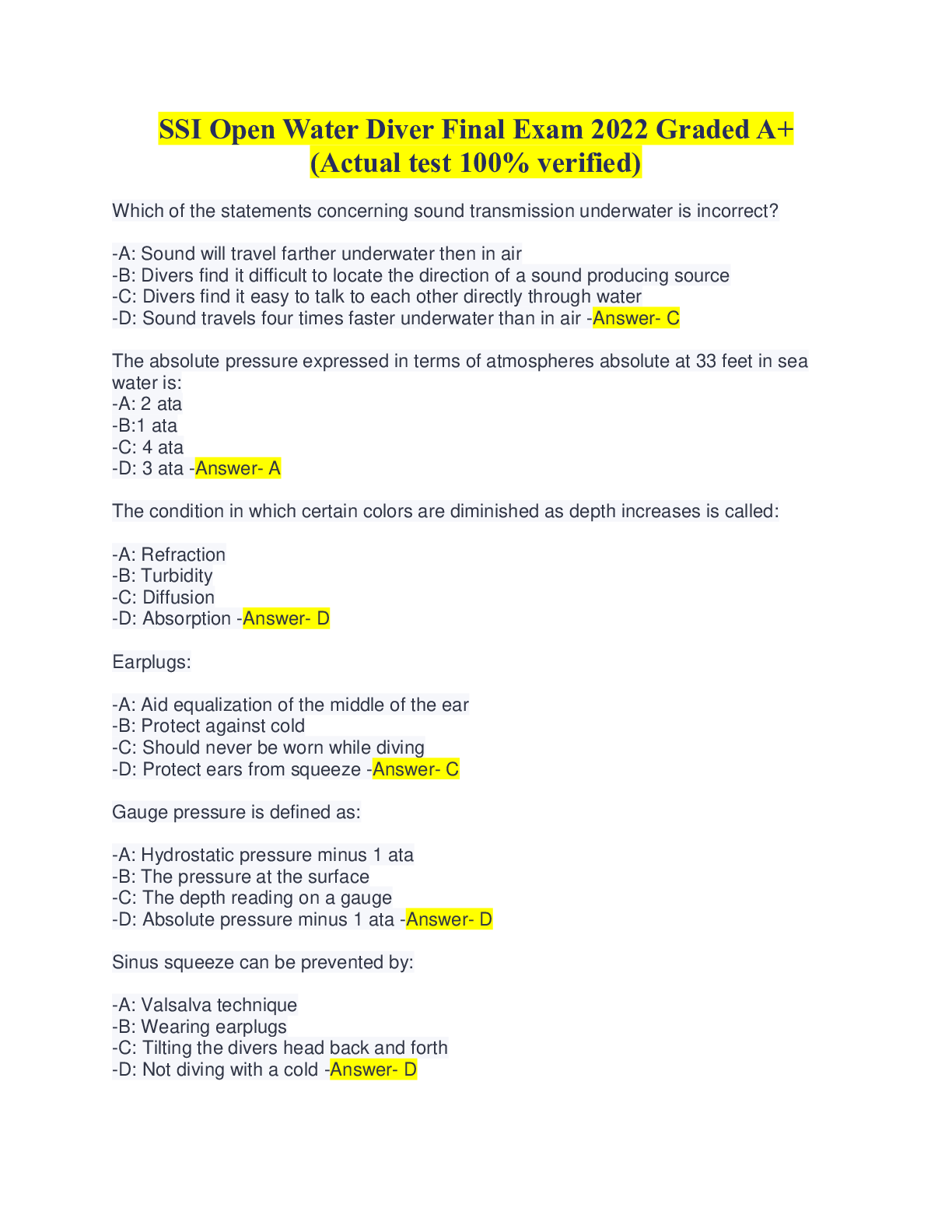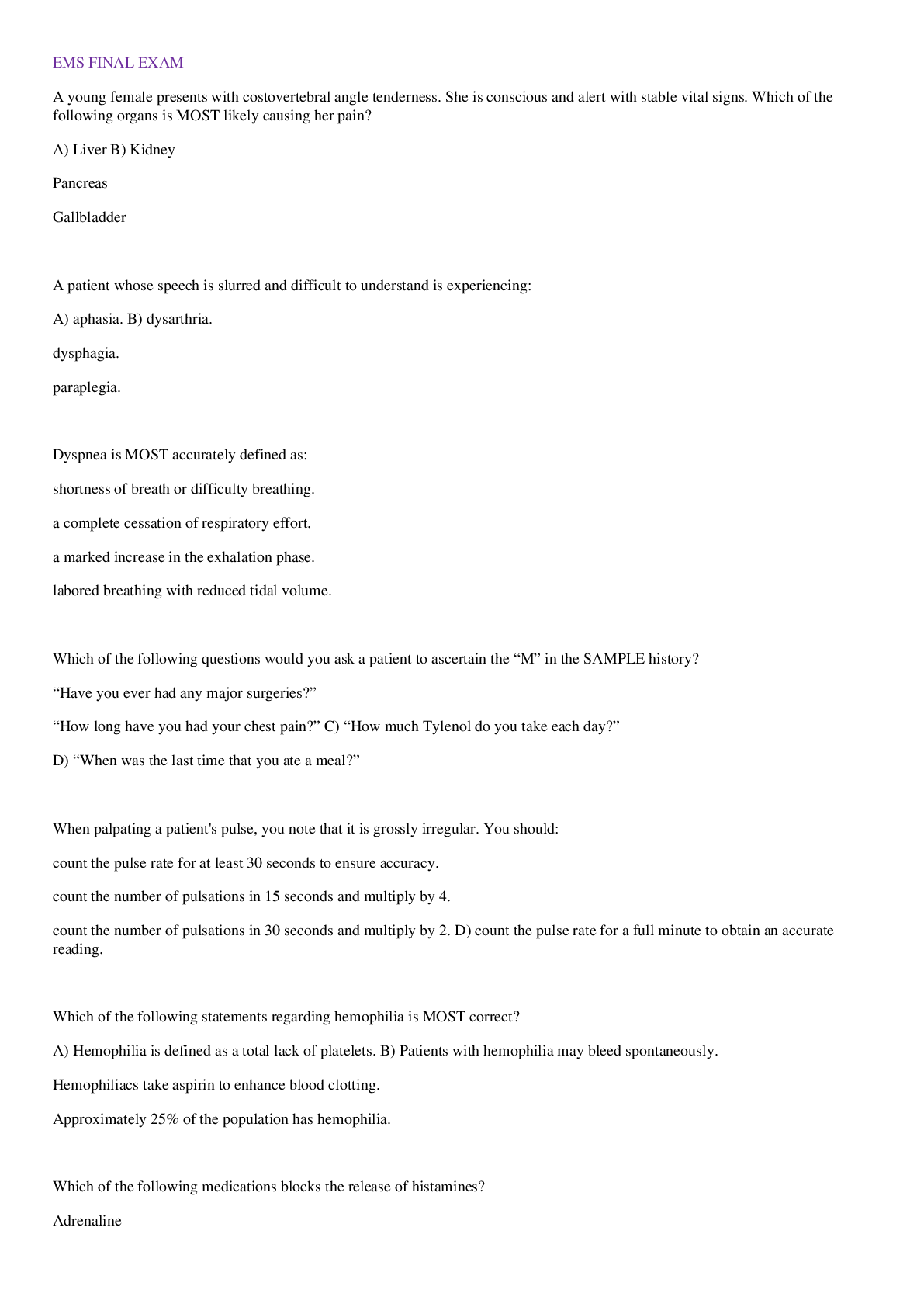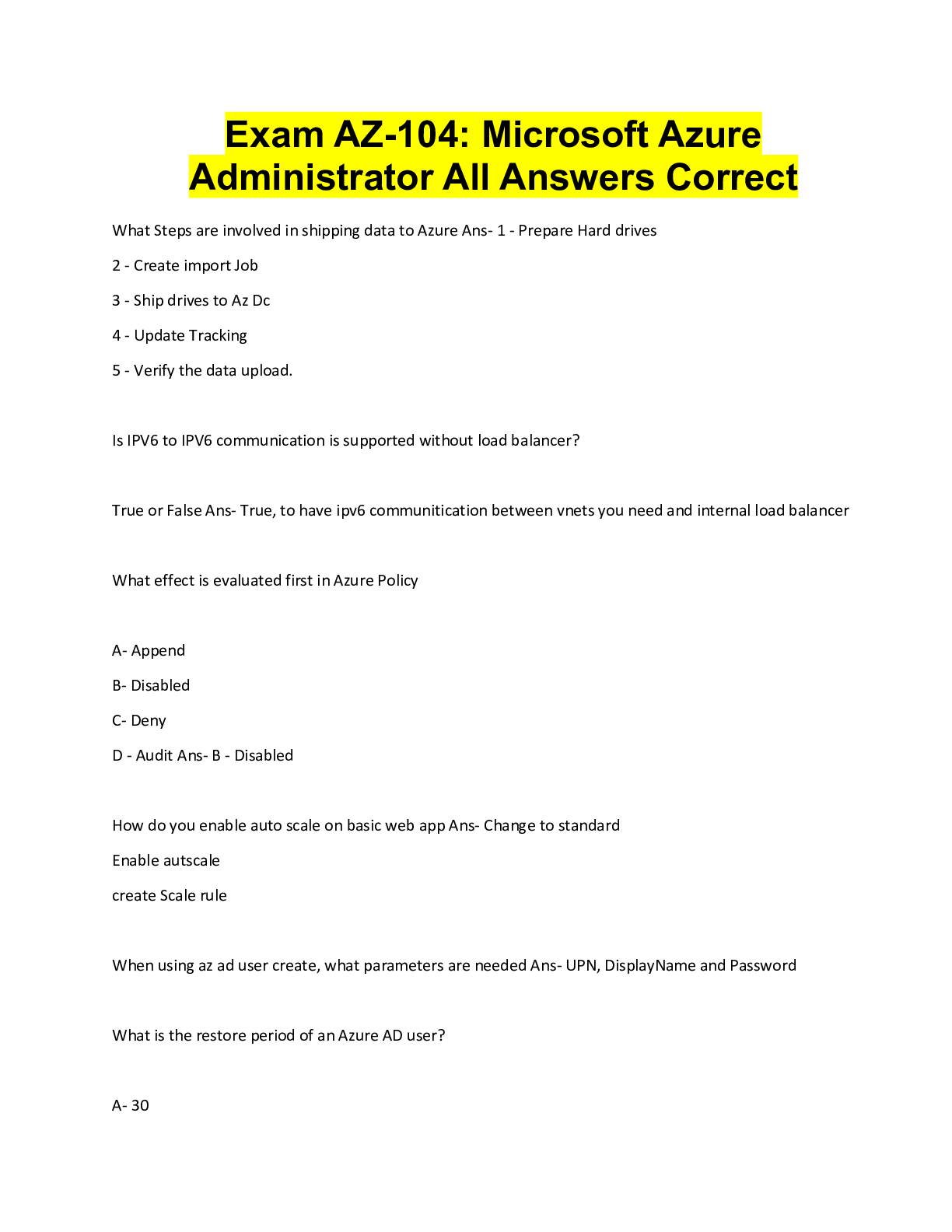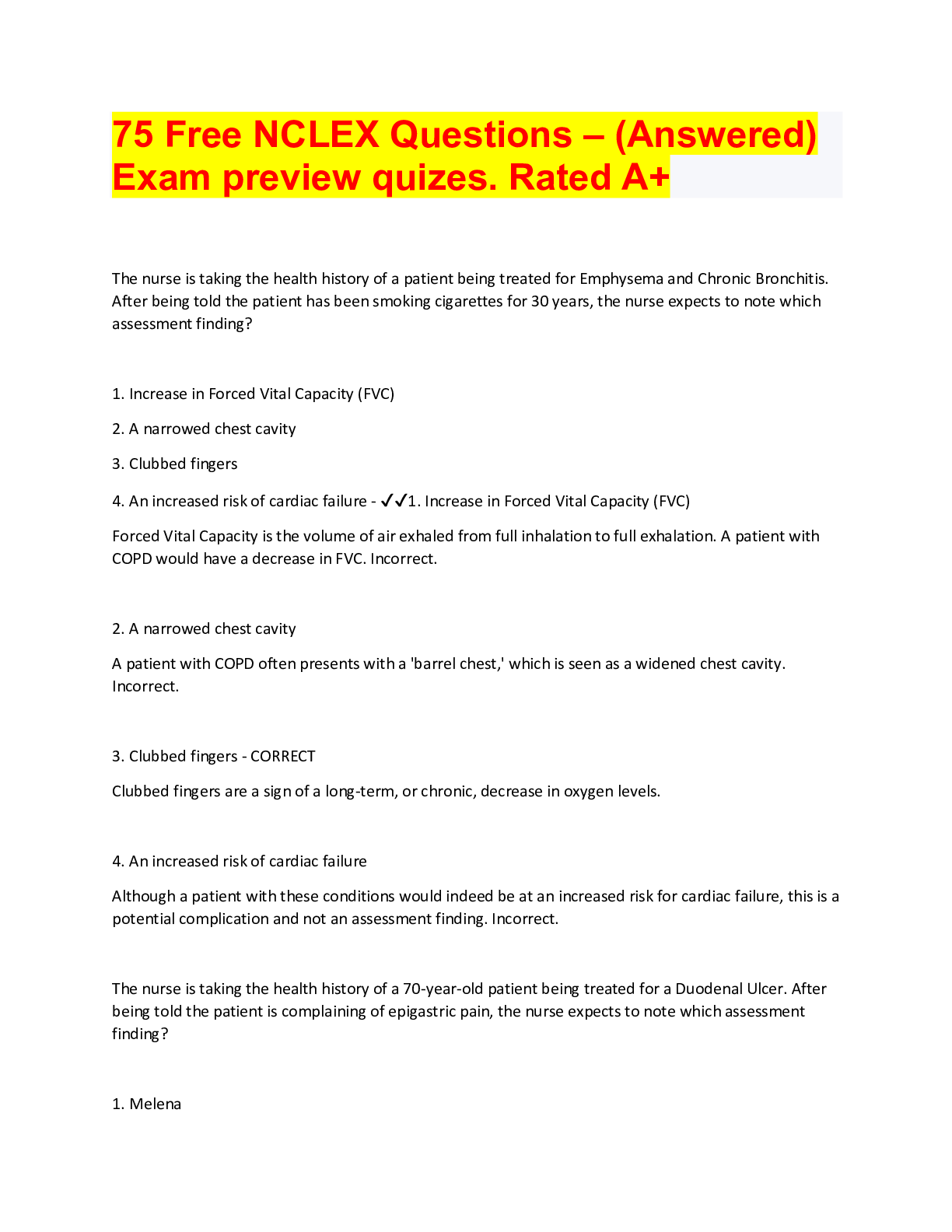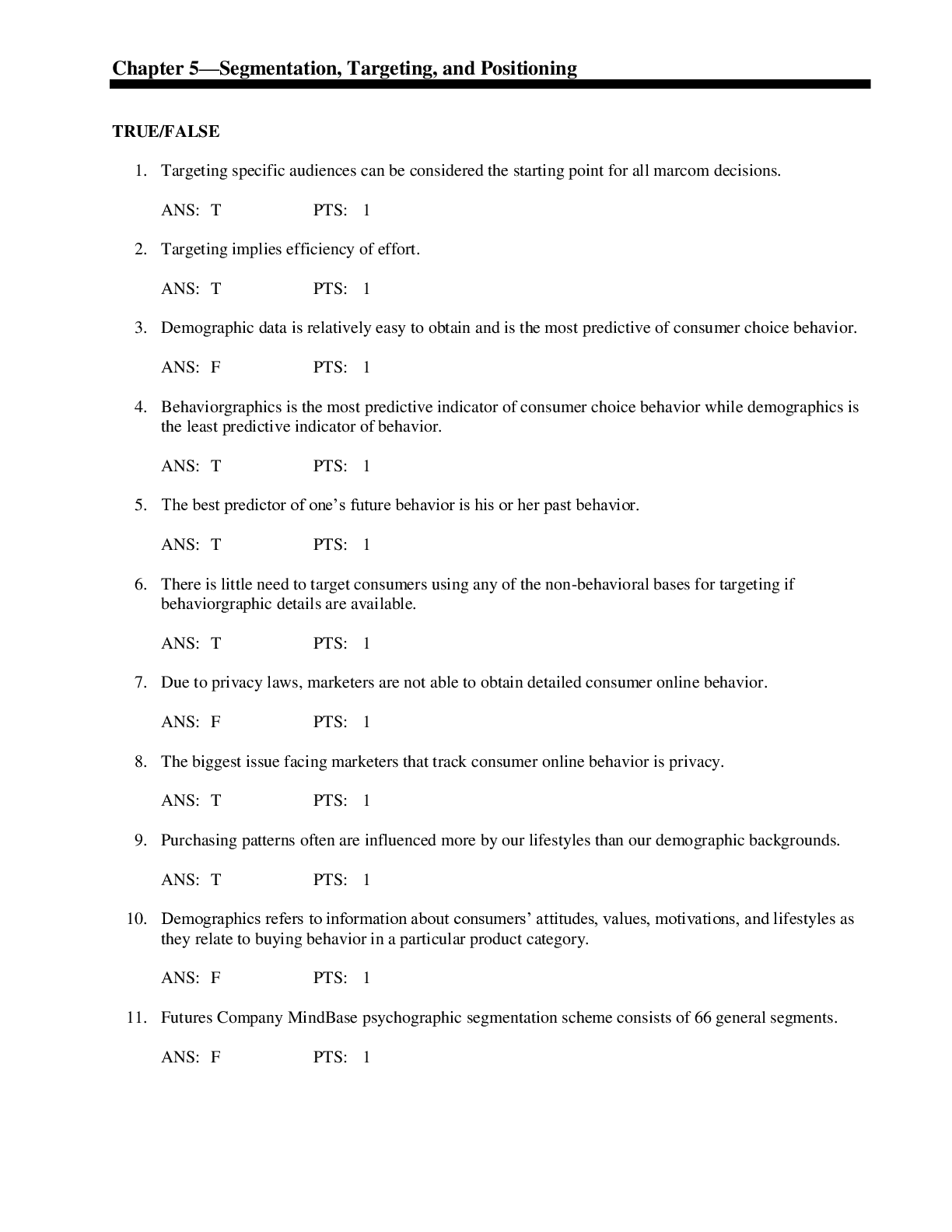BioChemistry > QUESTIONS & ANSWERS > Metabolic Biochemistry Exam 1 Study Questions and Answers 2022 (All)
Metabolic Biochemistry Exam 1 Study Questions and Answers 2022
Document Content and Description Below
Metabolic Biochemistry Exam 1 Study Questions and Answers 2022 How do allosteric effectors affect enzyme structure and function? -Answer- "from a distance" allosteric inhibitors can either activat... e or deactivate an enzyme. Example of allosteric inhibitor -Answer- ATP = allosteric I for ATCase. Give overview of glycogen phosphorylase covalent modification -Answer- (glycogen)n +PO4 -> (glycogen)n-1 and G6P How does covalent modification affect the T and R state for glycogen phosphorylase? -Answer- Phosphorylated form favors the R-state (active) Dephosphorylated form favors the T-state (inactive) Reasons why T-state of glycogen phosphorylase is inactive -Answer- 1. Loop blocks the active site so substrate cannot bind. 2. Malformed active site: misaligned Arg for phosphate substrate binding. 3. Ser14 is not near allosteric Arg. Reasons why R-state of glycogen phosphorylase is active. -Answer- 1. Active site not blocked by loop due to flexibility. 2. Arg properly aligned to bind to phosphate. 3. Ser-phosphate goes through conformational change to be near allosteric site. What condition to metabolic pathways function under? -Answer- Steady-state: constant input of reactants. What type of Delta G does an enzyme that functions near equilibrium have? -Answer- Near-equil. = no reactant buildup so Q~Keq so Delta G ~0. Small change in [reactant] leads to change in Delta G sign and direction of reaction. What type of Delta G does an enzyme that functions far from equilibrium have? -Answer- Large neg. Delta G Too slow to maintain equil [R] and [R] and is irreversible. Q<<<<<<Keq so Delta G <<<<<0 Changes in [R] do not alter G significantly. Define "high-energy" compounds -Answer- "packets" of energy (large neg. Delta G) are conserved by the synthesis of a few types of "high-energy" intermediates whose subsequent exergonic breakdown drives endergonic processes. Four example of "high-energy" compounds. -Answer- Pyrophosphates Acylphosphates Thiolesters Phosphoguanadines Factors that contribute to high energy of pyrophosphate -Answer- 1. Resonance competition relieved with hydrolysis. 2. Electrostatic repulsion is relieved in hydrolysis. 3. More favorable solvation energy of hydrolysis products. Factors that contribute to high energy of acylphosphates -Answer- 1. Resonance competition relieved with hydrolysis. 3. More favorable solvation energy of hydrolysis products. Factors that contribute to high energy of thiolesters -Answer- 3. More favorable solvation energy of hydrolysis products. 3 reasons why energy is released when bond is hydrolyzed. -Answer- 1. Resonance stabilization of hydrolysis products is greater than the reactant. 2. Electrostatic repulsion is relieved. 3. Smaller solvation energy for reactant than products. (hydrolysis products make more nonconvalent interactions with water). Reaction scheme and Delta G for pyrophosphate -Answer- ATP --> AMP +P-Pi --> +inorganic pyrophosphatase --> 2 Pi Delta G = -19 [Show More]
Last updated: 2 years ago
Preview 1 out of 4 pages

Buy this document to get the full access instantly
Instant Download Access after purchase
Buy NowInstant download
We Accept:

Reviews( 0 )
$6.50
Can't find what you want? Try our AI powered Search
Document information
Connected school, study & course
About the document
Uploaded On
Sep 13, 2022
Number of pages
4
Written in
Additional information
This document has been written for:
Uploaded
Sep 13, 2022
Downloads
0
Views
107

